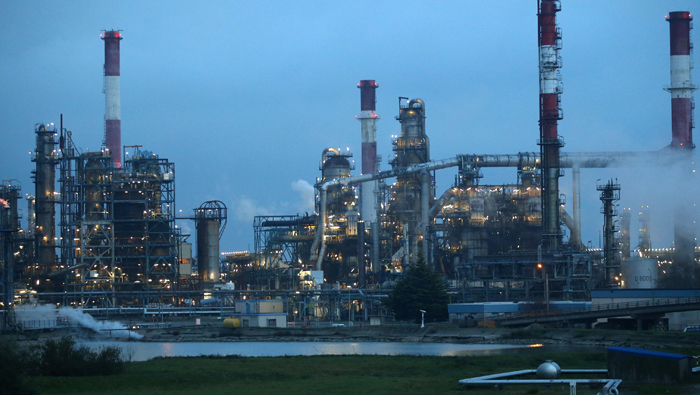
Muscat: The latest edition of PwC’s Middle East Economy Watch looks at the recent oil price rebound and its mixed impact on regional economies.
Richard Boxshall, Senior Economist at PwC Middle East, notes: “Our analysis shows that oil prices rebounded during the few months of 2019 as a result of strong compliance with production cuts by Organisation of Petroleum Exporting Countries (Opec).
"Meanwhile, gross domestic product (GDP) data for the end of 2018 and lead indicators such as PMIs in early 2019 indicate a broadly positive economic trajectory, albeit not universally. One area of concern is the onset of deflation in the Gulf Cooperation Council (GCC)," he said.
"The region’s three largest economies were all experiencing deep deflation as of February, with some fears over whether it may be sustained. We also found that the regional decline in consumer prices is the steepest in decades, driven by rents and fuel,” he added.
2018 ends well
Many countries in the region that publish quarterly GDP saw strong fourth quarter results. For Bahrain (4.6 per cent) and Saudi Arabia (3.6 per cent) this was largely due to higher oil output, although both countries did also see an acceleration in non-oil growth, to 3.2 per cent for Bahrain and 2.0 per cent for Saudi Arabia. There was also strong performance for Egypt (5.5 per cent) and Palestine (3.4 per cent). However, Jordan (1.8 per cent) is struggling with fiscal austerity and Qatar (0.3 per cent) suffered LNG maintenance downtime and a slowing non-oil sector.
Deflation persists
At the start of 2019, the GCC’s two largest economies, Saudi Arabia and UAE, suddenly fell into deflation. Qatar was already in a period of deflation, which has continued, and the other Gulf states have only been experiencing very mild inflation. Taken as a whole, this means that consumer prices in the GCC overall fell into deflation for the first time since 2000 and are in the steepest period of decline in many decades.
"Our analysis estimates there was a shift from 1.3 per cent year-on-year inflation in December to -1.6 per cent deflation in January, deepening to -1.8 per cent year-on-year in February.
VAT masked the trend
Part of the reason that the deflationary trend seemed surprising is that the introduction of value added tax (VAT) in UAE and Saudi Arabia in 2018, together with cuts in fuel subsidies and excise taxes in some countries, masked underlying trends. The 5 per cent VAT rate probably added about 3 percentage points to inflation in Saudi Arabia and 2 points in UAE (owing to a narrower scope than Saudi Arabia and household expenditure that is skewed more heavily towards VAT-free items such as rent).
If the VAT impact were excluded, Saudi Arabia would have likely suffered deflation in 2018 (as it did for most of 2017) and the GCC as a whole would have seen flat prices (as was also the case in 2017). Within the UAE, a significant gap has opened up between Dubai and Abu Dhabi. Dubai is undergoing the sharpest deflation in the region, down -3.9 per cent year-on-year in February whereas Abu Dhabi’s is milder at -0.8 per cent. This is a notable shift, because as recently as late 2017 Dubai was experiencing higher inflation than Abu Dhabi.
Drivers of deflation
The predominant driver of deflation is rents, which saw both the largest decline and is the largest component of the regional Consumer Price Index (CPI) basket (28 per cent). Transportation saw the second largest decline and made the next largest contribution to overall deflation. There were smaller declines in communications, recreation and miscellaneous goods and services, but their contributions to the overall trend was small.
“The regional deflation has happened despite the introduction of VAT in Bahrain and excise taxes in Qatar and would have been even steeper without these measures. There will be further policy boosts to prices later this year, including excise taxes in Oman and subsidy cuts in Bahrain. However, it is looking likely that the region will see flat or falling prices for the year as a whole," Richard Boxshall said.
"Dubai stands out because its deflation is broad-based, spanning 83 per cent of its CPI basket. This may be due to its more competitive economy and could provide advanced notice of trends that will hit other countries later in the year. Overall, deflation is a boon for consumers but will squeeze corporate profit margins and could stifle investment and growth,” he added.